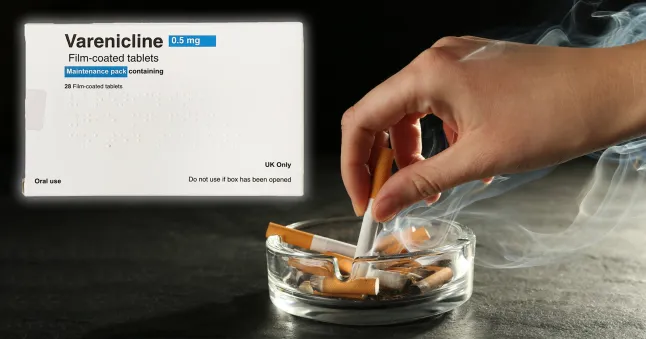NHS Rolls Out Smoking Cure Pill, Sparks Debate
- November 18, 2024
- 0
Smoking Crisis Calls for Bold Measures The National Health Service (NHS) has unveiled a new, once-a-day pill designed to help smokers quit. The drug, Varenicline, is being touted
Smoking Crisis Calls for Bold Measures The National Health Service (NHS) has unveiled a new, once-a-day pill designed to help smokers quit. The drug, Varenicline, is being touted

The National Health Service (NHS) has unveiled a new, once-a-day pill designed to help smokers quit. The drug, Varenicline, is being touted as a life-saving treatment, potentially helping thousands of people break free from nicotine addiction. However, its introduction has sparked discussions about cost, effectiveness, and public health priorities.

Smoking remains a massive health challenge in the UK. According to NHS England, it causes over 70,000 deaths and 400,000 hospitalizations annually. The economic toll is equally staggering, with smoking-related illnesses costing the NHS £2.6 billion each year.
Despite these grim statistics, quitting is far from easy. Withdrawal symptoms such as irritability, restlessness, and difficulty concentrating make cravings hard to resist. But the NHS hopes this pill can provide a vital solution.
Varenicline, developed by Teva UK, works in two critical ways:
The pill is most effective when combined with behavioral support programs. Research suggests it can help one in four users stay smoke-free for at least six months. Over the next five years, the NHS projects that this pill could assist 85,000 people annually in quitting, potentially saving up to 9,500 lives.
The drug isn’t entirely new. Previously available under the brand name Champix, it was withdrawn in 2021 due to safety concerns over impurities. Now, after approval from the Medicines and Healthcare products Regulatory Agency (MHRA), a generic version of Varenicline is back on the market.
The rollout of Varenicline aligns with broader government efforts to combat smoking. Recently, the Tobacco and Vapes Bill introduced plans to raise the legal smoking age. Under the proposal, anyone born after January 1, 2009, would never legally purchase tobacco.
This approach could create a smoke-free generation, according to Health Secretary Wes Streeting. “Prevention is better than cure,” he said. “This pill, along with the new bill, builds a healthier society while saving millions for the NHS.”
Critics argue that the pill alone isn’t a silver bullet. Public health experts warn that it must be part of a comprehensive strategy, including funding for cessation services and support for those trying to quit.
Dr. Ian Walker from Cancer Research UK emphasized this point: “Around 160 cases of cancer daily in the UK are tobacco-related. Action is crucial.”
Similarly, Henry Gregg of Asthma + Lung UK highlighted the ongoing challenges faced by current smokers. “The Tobacco and Vapes Bill is great for the future, but today’s smokers need help too,” he said.
Alongside Varenicline, the NHS sometimes offers e-cigarettes as a short-term solution to quitting. While controversial, these devices can help smokers transition away from traditional cigarettes. Experts agree that combining multiple tools increases the chances of success.
The introduction of Varenicline reflects the NHS’s commitment to reducing the burden of smoking. However, achieving long-term success will require sustained effort, investment, and public engagement.
For smokers eager to quit, the message is clear: help is available. But it takes more than a pill—it takes a plan.
“This pill could be a game changer,” said Amanda Pritchard, NHS England’s chief executive. “It’s another step towards prevention-focused healthcare.”
As the NHS rolls out Varenicline, the question remains: Will it truly deliver on its promise, or will it face the same challenges as its predecessors? The answer lies not only in science but in the will of individuals and policymakers to fight smoking’s grip on society.